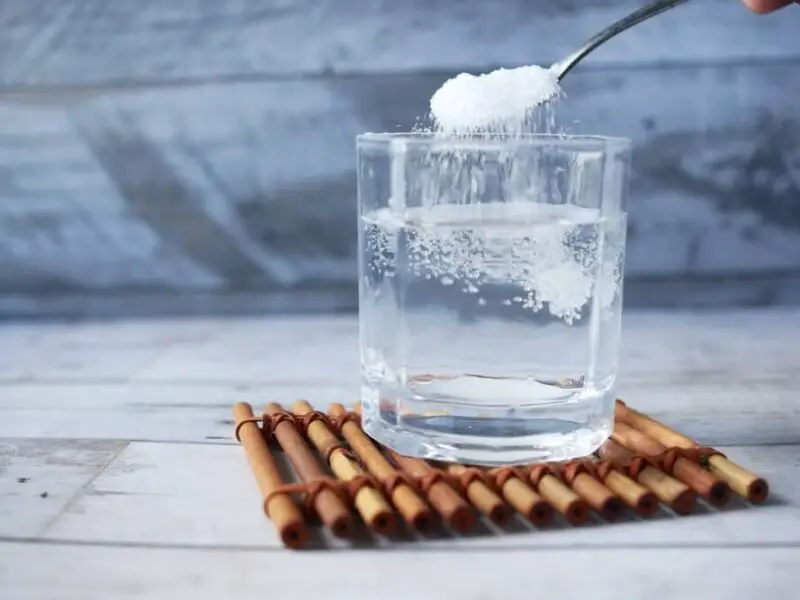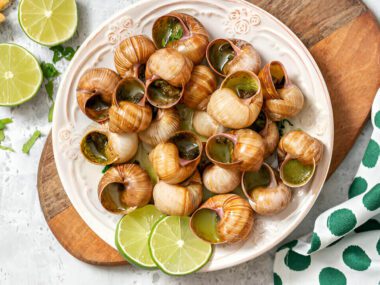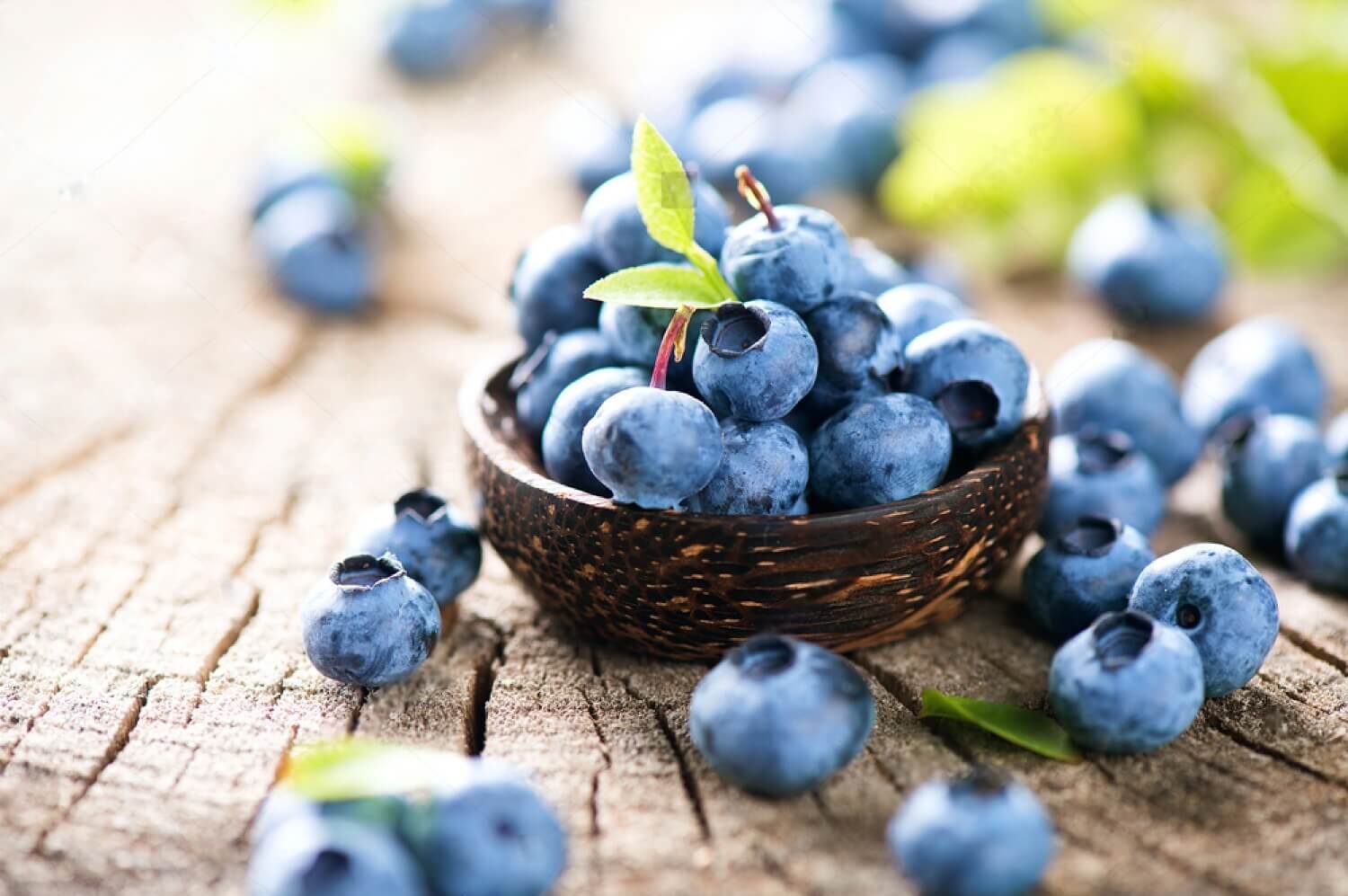You’re probably thinking “Pfft, sugar water? How could that ever go bad?” Well, let me tell you, my friend, that sweet and innocent-looking liquid can turn into a funky, moldy mess if you’re not careful.
We’ve all been there – you make a big batch of sugar water for your hummingbird feeders or to fuel your DIY kombucha experiments, and then life happens. Next thing you know, that forgotten jar of sugar water is collecting dust in the back of your pantry. But can you really just chug it down without a second thought?
The eternal question of does sugar water go bad has puzzled snackers and nature enthusiasts alike. Some swear it’s immortal, while others have learned the hard way that even the simplest concoctions can go south. So which is it? Does that sweet nectar have an expiration date, or can you safely sip on it until the cows come home?
Buckle up, because we’re about to dive headfirst into the great sugar water debate. From the factors that affect its shelf life to the telltale signs of spoilage, we’ve got all the juicy details covered. Who knows, you might even pick up a few tips on how to keep your sugar water fresh and fabulous for longer. Intrigued? Keep reading to find out if your sugary staple is still safe to slurp!
What is Sugar Water?
You’ve probably been making sugar water since you were a kid, mixing that sugary goodness into a glass of water for a quick pick-me-up. But let’s get technical for a moment and break down what this liquid refreshment really is.
At its core, sugar water is exactly what it sounds like – water with dissolved sugar. Simple syrup, if you want to get fancy. The sugar can be good ol’ white granulated sugar, or you can jazz things up with other varieties like brown sugar or even honey.
Now, the magic happens when you combine the sugar and water in the right ratios. A typical sugar water solution has around 1 part sugar for every 4 parts water. This creates a liquid that’s sweet but not thick and syrupy. Too little sugar, and you’ve just got mildly flavored water. Too much sugar, and you’re basically making simple syrup for your coffee.
While it may seem basic, sugar water is surprisingly versatile. It’s the key ingredient for making flavorful beverages like lemonade or iced tea. Outdoor enthusiasts use it to feed hummingbirds and other nectar-loving critters. Some people even use it as a natural plant fertilizer or to jump-start sourdough starters.
No matter how you plan to use it, getting that sugar-to-water ratio right is crucial. But once you’ve nailed the perfect sugar water concoction, the real question arises: how long can you keep this liquid gold around before it turns into a science experiment? That’s what we’re here to find out!
Does Sugar Water Go Bad?
Yes, sugar water can go bad over time. While sugar itself has an incredibly long shelf life, once dissolved in water, the mixture becomes susceptible to microbial growth and spoilage.
Factors Affecting Shelf Life of Sugar Water
Okay, so we’ve established that sugar water is a delightfully simple mixture that’s useful for all sorts of things. But like all good things, it won’t last forever. Several key factors determine just how long your sugary solution will stay fresh and drinkable.
Sugar Concentration
The amount of sugar you add to the water plays a huge role in extending its shelf life. A more concentrated sugar solution (like a 1:1 or 2:1 ratio) acts as a preservative by tying up the free water molecules that bacteria need to thrive. The less available free water, the harder it is for nasties to grow.
Storage Temperature
Just like with most foods and drinks, cooler temperatures help sugar water keep its cool for longer. Storing it in the fridge will buy you way more time compared to leaving it out at room temperature. And if you really want to stretch things out, stick it in the freezer.
Air Exposure
Oxygen is the enemy when it comes to keeping sugar water fresh. That’s because airborne bacteria and mold spores can easily contaminate an open container of sugar water over time. Using an airtight container and minimizing air exposure goes a long way.
Container Type
What you store your sugar water in matters too. Non-porous containers like glass or food-grade plastic are your best bets, as they won’t absorb flavors or leach chemicals. Stay away from containers made of materials that could rust or degrade over time.
The key takeaway? High sugar concentrations, cold temps, minimal air exposure, and inert containers create the ideal conditions for long-lasting sugar water bliss. But even with all those factors optimized, your sweetened H2O won’t keep forever…
Signs of Spoilage in Sugar Water
Even if you’re doing everything right with your sugar water storage, there’s no avoiding the inevitable – at some point, it’s going to go bad. But how can you tell when your once-pristine sugary solution has crossed over to the dark side? Here are some telltale signs to watch out for:
Visual Cues
One of the biggest giveaways that sugar water has turned is a change in appearance. If your crystal-clear liquid starts looking cloudy, develops weird colors or floating particles, that’s a major red flag. You might also see mold growth, which is an obvious sign of contamination.
Odor Offenders
While fresh sugar water doesn’t really have much of a smell, spoiled stuff definitely does – and it’s not a pleasant one. An off, funky, or rotten odor is a sure indicator that something’s not right. Use your nose and trust your instincts on this one.
Taste Test (If You Dare)
Obviously tasting questionable sugar water isn’t recommended for safety reasons. But if you’re really curious and don’t mind the risk, an off, sour, or just plain weird taste is the final nail in the coffin for spoiled stuff. One sip and you’ll be reaching for the spit bucket.
The key thing to remember is that sugar water is supposed to be relatively unchanging in appearance, odor, and flavor when fresh. Any deviations from the norm are cause for concern. If you notice multiple red flags, it’s time to bite the bullet and toss that tainted batch.
Of course, knowing the Signs of Spoilage is only half the battle. You’ll also want to get familiar with the general shelf life expectations for different sugar water storage conditions…
How Long Does Sugar Water Last?
Now, let’s get to the million dollar question – just how long can you expect this sugary staple to last under different conditions?
The honest answer? It varies…a lot. Sugar water’s shelf life depends heavily on the concentrate levels, storage temps, and exposure to air that we discussed earlier. With that said, here are some general guidelines for how long you can keep it around.
Room Temperature Storage
If you’re leaving your sugar water out on the counter or in the pantry, it’s got a relatively short lifespan of about 5-7 days tops. The warmer conditions create an ideal environment for bacterial growth. Using higher sugar concentrations can stretch this to maybe 2 weeks at most.
Refrigeration (35-40°F)
Stashing your sugary solution in the fridge pays off big time in the longevity department. A basic 1:4 sugar to water ratio will keep for 2-3 weeks refrigerated. But if you go with a stronger 1:1 solution, you could get 4-6 weeks easily. Just be sure to use an airtight container!
Frozen (-10 to 20°F)
Freezing is the ultimate shelf life extension hack for sugar water. Frozen at typical freezer temps, even a basic 1:4 solution can last 6 months to a year with no issues. For the real long haulers, a concentrated 2:1 solution could theoretically keep for years when frozen solid.
No matter which storage method you choose, always pay close attention to any signs of spoilage we covered earlier. If it smells funky, looks nasty, or just seems “off”, it’s better to be safe than sorry – toss it out and start fresh.
The takeaway? With the right prep and storage, sugar water can definitely have a decent shelf life. But it’s not immortal, so use it or lose it! Speaking of using it up, let’s talk food safety…
Safety Concerns and Precautions
While sugar water seems harmless enough, consuming the spoiled stuff can actually pose some legit health risks.
Potential Hazards of Spoiled Sugar Water
The biggest concern with drinking bad sugar water is the possibility of ingesting harmful bacteria or mold. Depending on the contamination, this could potentially cause foodborne illnesses like stomach flu, diarrhea, or even more severe issues. Not a fun time.
Even if the spoiled sugar water doesn’t make you violently ill, it can still contain compounds produced by microbial growth that may cause milder side effects like nausea, vomiting, or digestive discomfort. Your body definitely doesn’t want any of that funk.
In rare cases, toxic molds that produce mycotoxins could potentially grow in spoiled sugar solutions. Ingesting these could lead to serious poisoning symptoms like dizziness, headaches, and neurological problems. Not worth the risk!
Proper Storage and Handling
The best way to avoid these hazards is through proper food safety practices when making and storing your sugar water:
- Use clean, sanitized containers and utensils
- Avoid cross-contamination from other ingredients
- Store in the refrigerator or freezer promptly after making
- Don’t leave at room temp for extended periods
- Reheat refrigerated portions to at least 165°F before consuming
If you notice any off odors, colors, textures, or just get a funky vibe from your sugar water, don’t try to tough it out. When in doubt, pour it out! It’s better to waste a batch than risk getting sick.
When to Discard
As a general rule of thumb, you’ll want to toss out any sugar water that shows multiple signs of spoilage or sits out at room temperature for more than a couple days. Don’t punt food safety just to avoid a little food waste.
For refrigerated portions, anything older than 2-3 weeks for standard concentrations or a month for stronger solutions should get the boot. And for that forgotten stash in the freezer? If it’s been longer than 6 months to a year, it’s best to defrost and inspect before consuming.
The bottom line is, sugar water is cheap and easy to make. Don’t risk your health by trying to stretch an old, nasty batch. Stay safe, follow basic food prep guidelines, and whip up a fresh supply when you need it!
Alternatives and Substitutes
So you’ve made it this far and now you’re an expert on sugar water shelf life, spoilage signs, and safety precautions. But what if you’d rather avoid the whole “will it or won’t it go bad” conundrum altogether? Well, you’ve got options, my friend!
If you’re looking for longer-lasting alternatives to basic sugar water, there are a few routes you can take:
Other Liquid Sweeteners
Instead of granulated white or brown sugar, you could try dissolving other sweeteners like honey or maple syrup into water. Both of these have more complex sugar compositions that can increase shelf life compared to plain old sucrose.
Honey in particular is a great option due to its low moisture content and natural antimicrobial properties. Properly stored honey can literally last for years without spoiling! Just be aware that honey water won’t stay liquid if refrigerated.
Commercial Hummingbird Nectar
For all you bird-watching backyard enthusiasts, premixed commercial hummingbird nectar is a solid alternative to homemade sugar water. These products contain preservatives to inhibit microbial growth and extend shelf life.
Most commercial nectars will keep for several months to a year when properly refrigerated or frozen after opening. No fuss, no muss! Just pour straight into those cute little feeders.
Artificial Sweeteners
If you really want something that’ll keep practically forever with no spoilage risk, you could try dissolving zero-calorie artificial sweeteners into water instead of sugar. Substances like sucralose, saccharin, etc. don’t provide food sources for microbes.
Just bear in mind that hummingbirds and other pollinators may not be attracted to artificial sweeteners. But for your own personal consumption, diet sweetened water is effectively non-perishable.
The one downside of these alternatives? They tend to be more expensive than just mixing up a quick sugar solution yourself. But if having that longer shelf life and low spoilage risk is worth a few extra bucks to you, they’re solid options to consider!
Frequently Asked Questions
Even after covering all the nitty-gritty details about sugar water shelf life, spoilage, and alternatives, you may still have some lingering questions. Never fear, we’ve got you covered with answers to some of the most common sugar water queries:
Can I just boil old sugar water to make it safe again?
Nope, sorry! Boiling or simmering spoiled sugar water won’t make it safe to consume again. Any harmful bacteria, molds, or toxins that may have developed won’t be eliminated by just bringing it to a boil. Your best bet is to discard any sugar water showing obvious signs of spoilage.
What if I added some vodka or rum to my sugar water mix? Would the alcohol help preserve it?
You’re onto something there! Adding a small amount of alcohol like vodka or rum to your sugar water solution can actually help extend its shelf life. The alcohol acts as a preservative to inhibit microbial growth. Just don’t go overboard on the booze or it’ll affect the sugar water’s intended use.
Is there a “best” type of sugar to use for maximum shelf life?
While plain white granulated sugar works just fine, you may get a bit more longevity out of your sugar water by using less-refined sugars like turbinado or demerara. Their natural molasses content can help preserve the mix longer compared to highly-processed white sugar.
How do I properly store large batches of sugar water?
For big volumes intended for long storage, your best bet is to divide the sugar water into smaller batches and freeze what you won’t need right away. Thaw in the refrigerator as needed. Avoid repeated freeze/thaw cycles to prevent degradation.
Is there any way to tell if my sugar water has been contaminated besides visible/odor signs?
Unfortunately, no. Most common pathogens that could grow in sugar water solutions don’t produce obvious signs until they’ve multiplied substantially. If you have any doubt about contamination, it’s better to be safe than sorry – dump it out.
Conclusion
Well, there you have it folks – the full scoop on whether sugar water can truly go bad and how to make the most of this sweet, simple staple. We’ve covered all the bases, from what gives it a funky demise to how to keep it fresh and fabulous for as long as possible.
At the end of the day, sugar water is about as low-maintenance as it gets in the beverage world. With just two basic ingredients and some simple food safety practices, you can enjoy this refreshing treat for weeks or even months at a time. Not too shabby for something that takes all of five minutes to whip up, right?
But we also learned that sugar water isn’t invincible. Left unrefrigerated for too long, stored improperly, or allowed to become contaminated, and this innocent liquid can turn into a microbial hot mess faster than you can say “sacchariferous solution.”
By paying attention to key factors like temperature, sugar concentration, exposure to air, and telltale signs of spoilage, you’ll be able to maximize your sugar water’s shelf life while avoiding any unpleasant surprises. And if you just can’t be bothered with all that, there’s no shame in opting for one of the handy commercial alternatives out there.
At the end of the day, the great sugar water debate boils down to using some common sense food safety practices and your best judgment. If it smells off, looks funky, or just gives you an uneasy feeling in your gut (literally), don’t risk it – toss it out and make a fresh new batch. Your tastebuds and tummy will thank you.
So go forth and sweeten to your heart’s content, my sugary friends! Whether you’re hydrating hummingbirds, crafting cocktails, or just satisfying a craving for something sweet and simple, hopefully this guide has empowered you to navigate the world of sugar water like a pro. Cheers!



